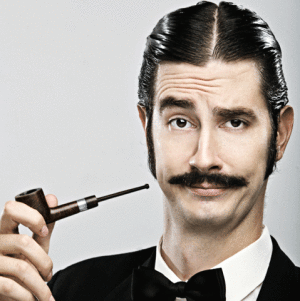
Be Gone, Sanctimonious Defenders of the Supposed Literary Canon
Get your rotten vegetables ready, hipsters, cynics, and sanctimonious self-professed defenders of what you view as the literary canon. This post is about how you’re entirely wrong about so many things. So many things.
If “it’s popular, so it can’t actually be good” is a philosophy by which you live your life, or you’ve accused someone recently of being responsible for “the decline of American intellectualism” (or similar), well, I strongly urge you take a long, good think about your station in life. For the good of all readers. Because you’re not helping. Despite what you think, YOU ARE NOT HELPING.
My rage against the milieu of literary dickishness has been stewing for awhile. And I realized recently it’d come to a head when I found myself telling a friend over drinks I’d never read John Green’s The Fault In Our Stars and I never would because there’s no way I’d like it, that the hype was too great, and that it was nothing but sappy emotionally manipulative teenage dreck.
The next morning, I woke up, took a long look at myself in the mirror, and realized I’d become everything I hate. It was a cathartic moment, and I started reading the novel that afternoon. It wasn’t half bad. Lesson definitively learned. Don’t do that again.
But beyond my personal return-to-Jesus moment, a recent article in Vanity Fair about Donna Tartt’s The Goldfinch — this year’s Pulitzer Prize winner, no less — is really what got my dander up. The piece points out how not all literary critics — most notably, James Wood of The New Yorker and writer Francine Prose — are sold on the novel’s literary merits. (Brief note: Noted grouchy literary critic, NY Times’ Michiko Kakutani actually loved The Goldfinch. A ray of hope? If you could bet on things like that, the odds may have been as high as 50:1.)
But so, the VF story then goes through a brief summary of the popular vs. serious literature debate (complete with many of the usual suspects, Stephen King, Dickens, etc.), discusses literary jealousy as a possible explanation for bagging on what most people like, and finishes by explaining how these critics think The Goldfinch’s popularity is a sure sign of how dumb we’ve all become.
And that’s all pretty stupid. (In fairness, despite the asinine headline “It’s Tartt — But Is It Art?”, the tone of the piece itself is more or less to make fun of these supposed reigning conquerors of the literary ivory tower.) But the stupidest part of the story, is near the end where the writer quotes the Paris Review critic Lorin Stein espousing a theory that casual readers, readers who only read “one or two books a year,” reading The Goldfinch is terribly awful, because they’ll be bored “because they aren’t children” (condescend much?) and won’t read more books.
I had to read that part twice because I thought he must be joking. Reasonable minds can disagree about how entertaining The Goldfinch is, but you can’t tell me steering casual readers to “serious” literature is going to have a greater impact on how much they read. That’s insane! Like we’re all going to start recommending Ulysses to our drunk uncles who only read books once a year on their six-day Myrtle Beach vacation. C’mon, man!
There are dozens of other examples of this condescension masked as serious criticism, but one other one that always cracks me up — people’s reaction to Fifty Shades of Grey. Sure, by any objective measure, it’s crap. (And I actually DID read it, so my opinion is educated.) But, also, as Jeff and Rebecca point out on a recent episode of the Book Riot podcast, panning it (especially if you HAVEN’T read it) does not make you smarter, more discerning, or better by any other measure of readerly prowess. It just means you didn’t like it (and I’m with you!). And therefore to cite it as no less than the decline of literature is at best foolish and at worst wildly hyperbolic nonsense.
It’d be easy to conclude here by spouting positive cliches, like “read and let read,” or “celebrate what you love,” and those are awesomely true, but let’s just agree that if you love Harry Potter, you’re no better or worse than if you love Infinite Jest. If all the cantankerous literary critics went away tomorrow, I’d be sad (I like James Woods, actually — he’s always stimulating, if nothing else), but I think we’ll be okay deciding for ourselves what we like, what’s worth our time, and what’s exceptional. We’re readers. And that’s pretty awesome.














